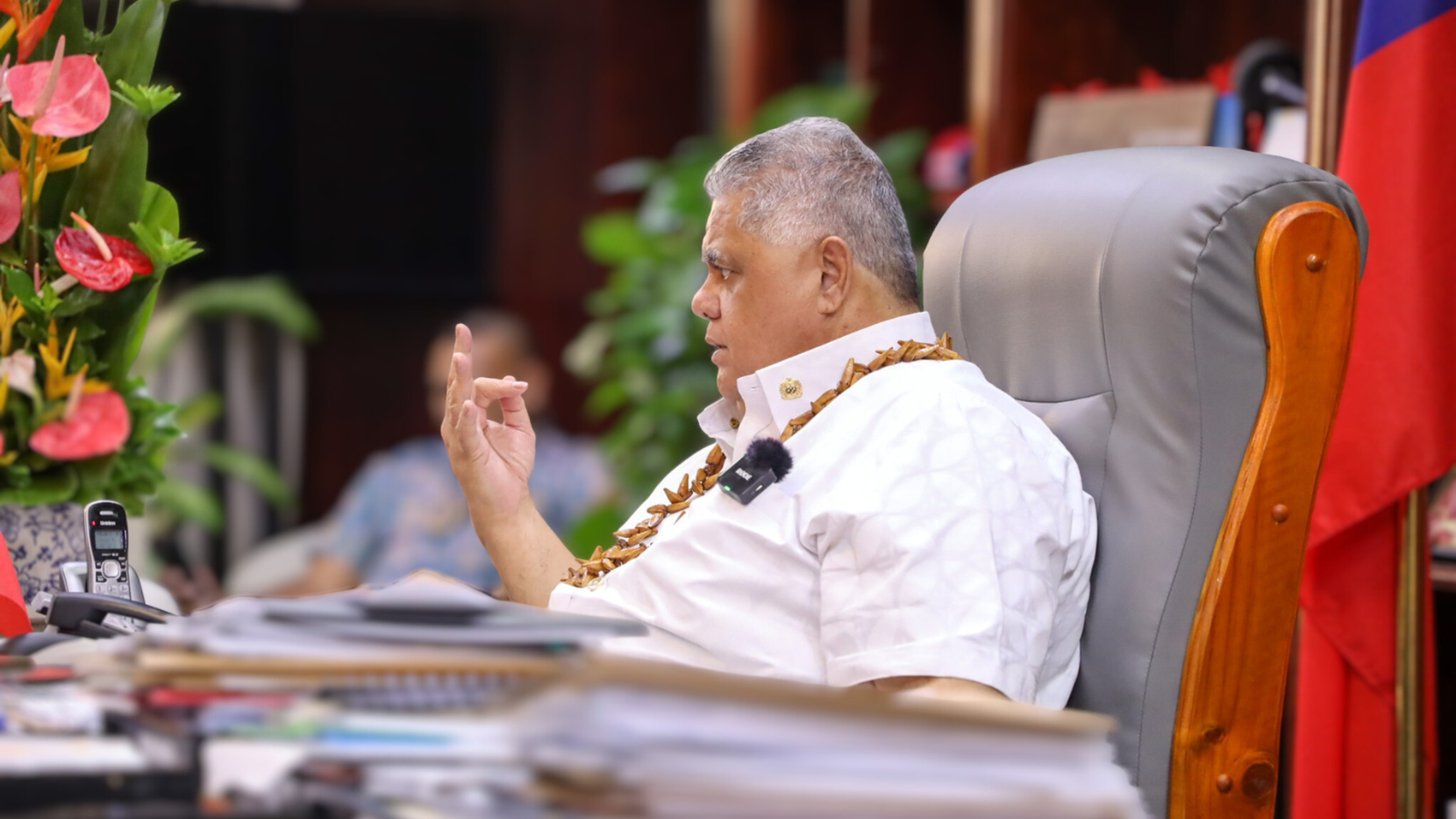

Labour leader Chris Hipkins speaks on visitor visas and the coalition's stance on US tariffs.
Photo/Labour party
Chris Hipkins welcomes extended Pacific visas, criticises coalition’s stance on US tariffs
The Labour leader says the multi-entry visas will have a positive impact on families and advocates for a more united approach to trade relations.



From Kelston to Canterbury: Pasifika engineering student awarded scholarship

Cook Islands tax data show $39m tourism growth to $317m

From South Auckland to Waratahs: Family drives Moananu’s Super Rugby journey


Sāmoa Prime Minister’s conspiracy case ruling postponed again

From Kelston to Canterbury: Pasifika engineering student awarded scholarship

Cook Islands tax data show $39m tourism growth to $317m

From South Auckland to Waratahs: Family drives Moananu’s Super Rugby journey
Labour Party leader Chris Hipkins is celebrating the recent decision to extend visa terms for visitors from Pacific nations, describing the change as “pretty sensible” and long overdue.
Starting in July, visitors from Pacific Islands Forum nations will be eligible for a multi-entry visa valid for 24 months, an increase from the previous 12 months.
Speaking on Pacific Mornings with William Terite, Hipkins emphasised this change's positive impact on families.
“People who are travelling backwards and forwards from the Pacific multiple times over a particular period, being able to enter with multi-entry visas - I think that will be very welcome,” he says.
“It will reduce costs for them, make life a lot easier, and we know that for a lot of our Pacific whānau, they have extended family members who are doing that journey backwards and forwards all of the time.”
Hipkins also addressed the newly imposed tariffs by the United States, saying New Zealand must explore options to mitigate the effects of a 10 per cent tax on trade exports.
“We're a free trading country, we believe in good access to international markets and we've got a lot that we want to sell, and tariffs are not going to be helpful to New Zealand, unfortunately,” he says.
“But I think we're still waiting to see exactly how this shakes down because the US' rules around tariffs seem to change on a daily basis at the moment.”
Hipkins says the Government should develop contingency plans while monitoring the situation.
Watch Chris Hipkins' full interview below.
New Zealand’s leaders have different opinions on how to characterise the current trade relationship with the US. Prime Minister Christopher Luxon has referred to it as a “trade war” and expressed a willingness to confront the issue, being “up for the fight”.
But Deputy Prime Minister Vaovasamanaia Winston Peters has criticised these comments as “hysterical and short-sighted”.
Peters, who is currently on a mission to the Pacific, suggests that Hawaii’s Governor Josh Green's more diplomatic approach could serve as a model for dealing with the US.
“This is a massively Democratic state, but nevertheless, they deal with Washington very, very well, and privately, we’ve got inside confirmation that our approach is right”, Peters says.
“Be very careful, these things are important, words matter, and be ultra cautious, all those things were confirmed by the Governor.”

NZ Deputy PM Vaovasamanaia Winston Peters speaking with military and political leaders in Honolulu, Hawai'i. Photo/PMN News/Joseph Safiti
Hipkins argues that a Labour-led government would not pursue retaliatory measures and would likely favour Australia’s approach. He says maintaining a consistent political stance is important.
“The stakes are pretty high at the moment around the world, there's a lot happening, and I think it's important that the New Zealand government gets its act together and presents a mature and stable and consistent response to those events around the world rather than sort of slugging it out in public as the current coalition seem to be doing.”
Labour's poll gains
Recent polling indicates that Labour is regaining support, which Hipkins attributes to the disunity within the coalition and the consequences of their actions.
“We have reflected on why we lost, and we’re getting back to basic issues,” he says, highlighting jobs, health, and housing as the party’s priorities.
“But it's early days, we're only halfway through the parliamentary term and a lot can happen in the next 18 months, I’m sure the polls will bounce around.
“The poll that matters is the one that happens on election day, and that's what we've got to focus on.”